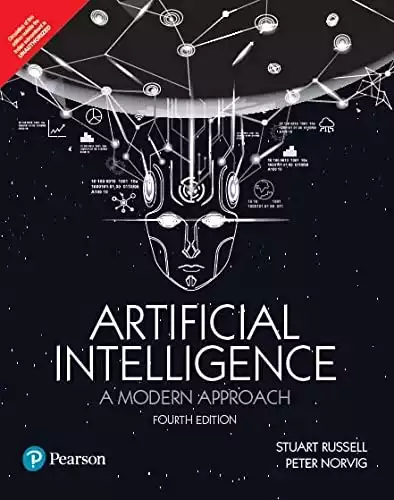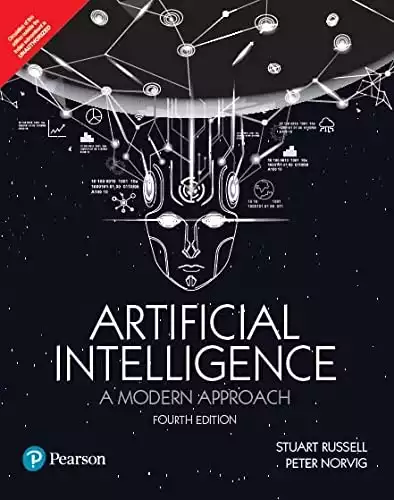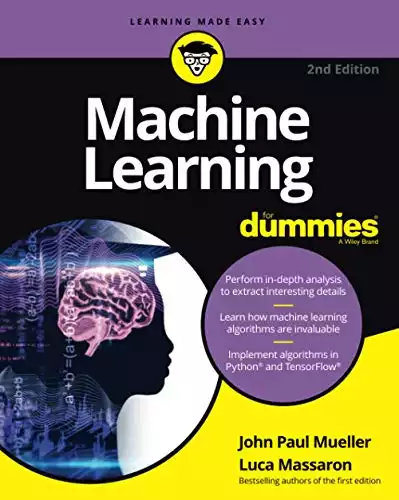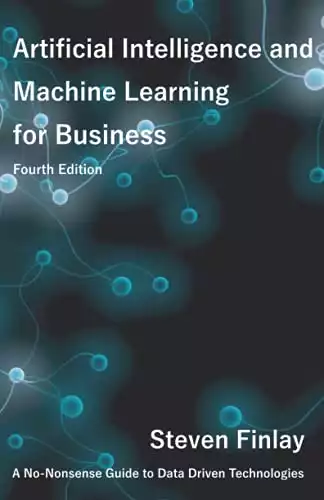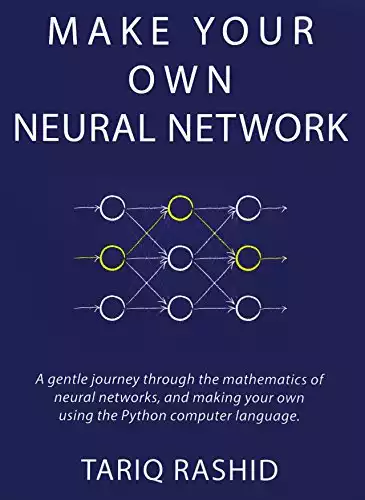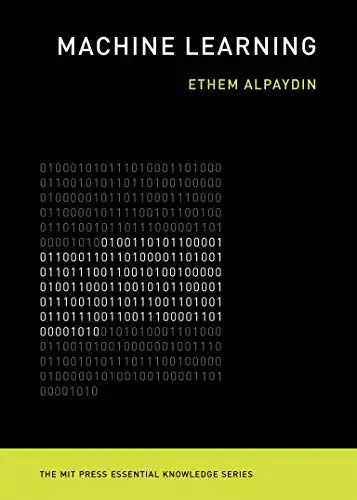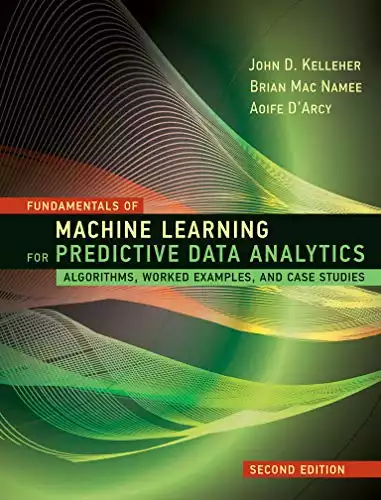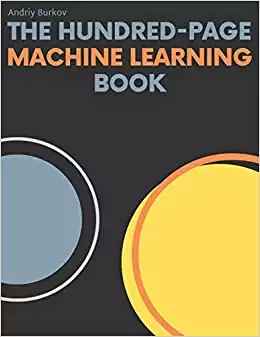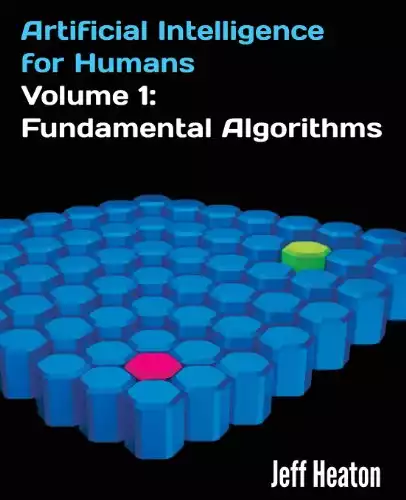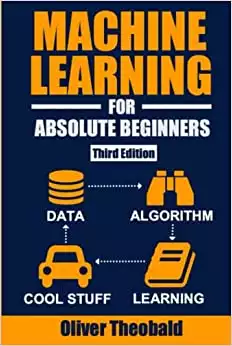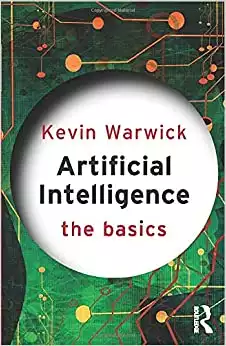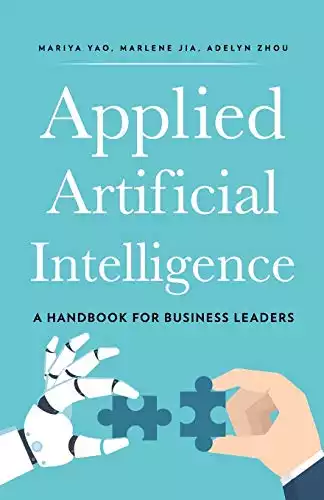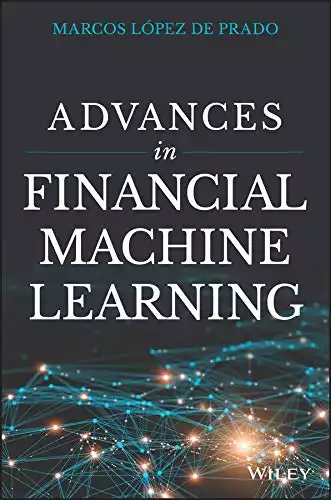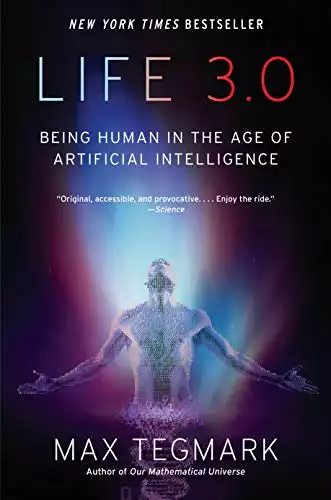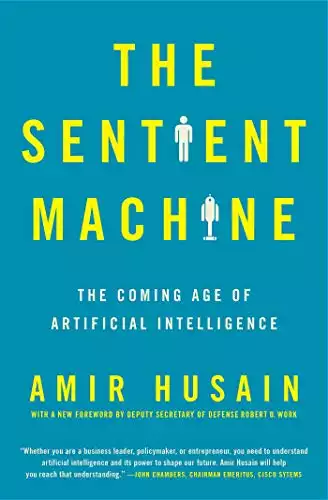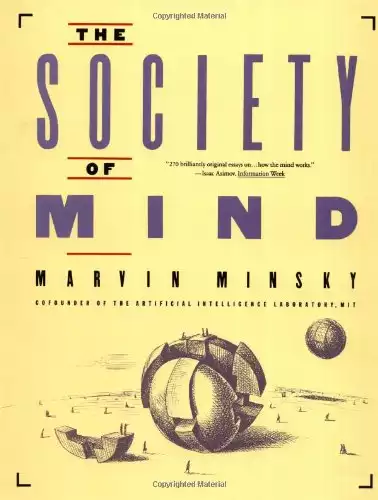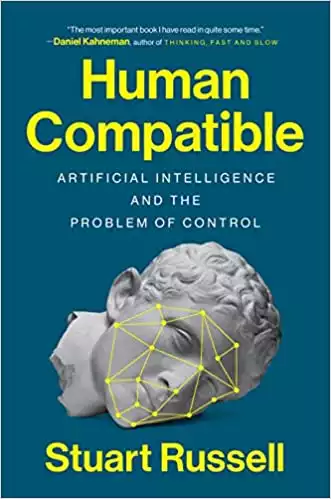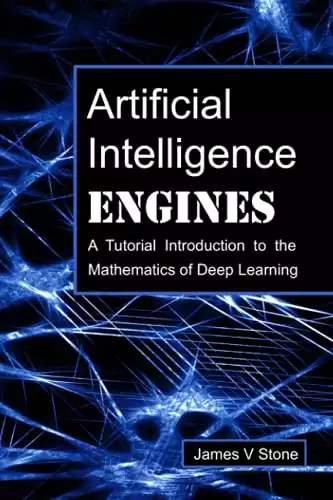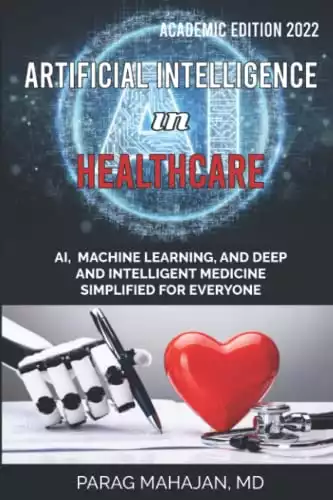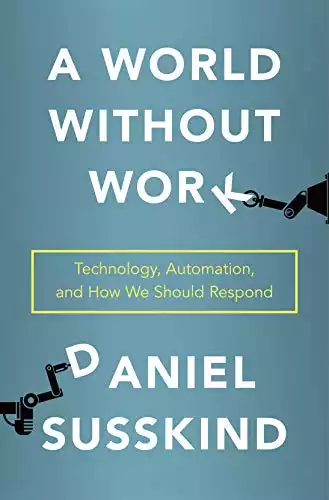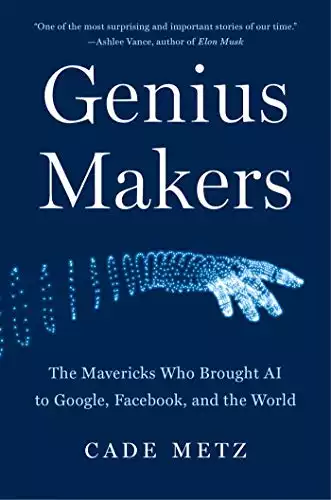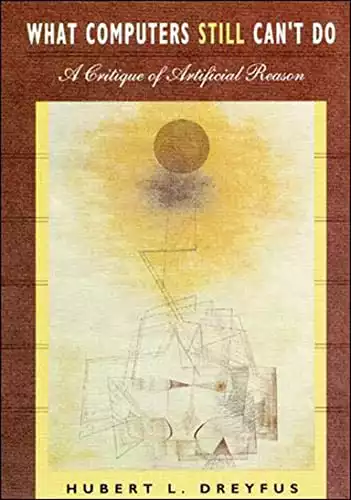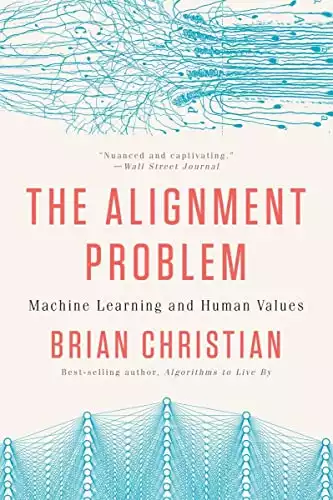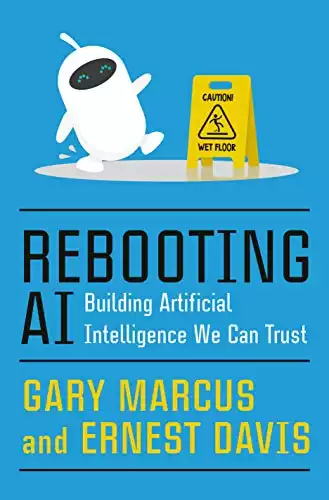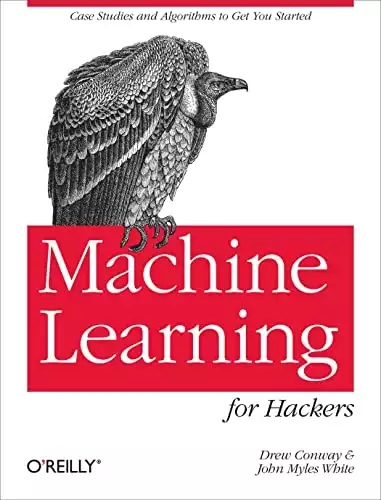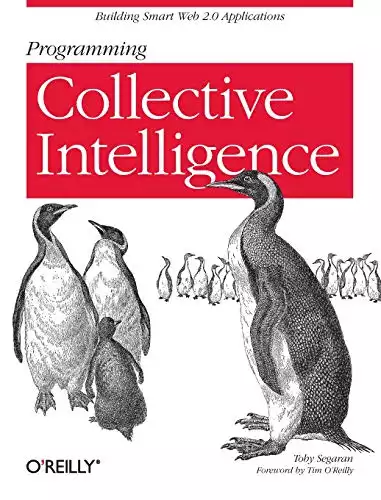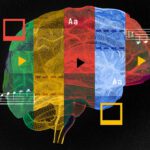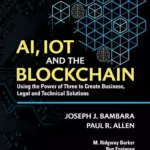Introduction
Artificial intelligence may have begun as mere fiction in books like “Frankenstein” and “Robots,” but it is now very real. As technology advances, we see more and more uses for AI. Many experts believe that it is the key to the future of our society and will play a pivotal role in solving some of our most pressing problems.
As such, a growing body of literature has emerged to help us understand and explore the many facets of AI. This post will discuss some of the best books on AI and the important lessons they teach us.
Table of contents
Also Read: Video Games With the Most Impressive AI
Artificial Intelligence – A Modern Approach (4th Edition)
One of the most comprehensive and well-regarded books on the topic is “Artificial Intelligence – A Modern Approach.” Written by leading AI experts Stuart Russell and Peter Norvig, this book doubles as an undergraduate and graduate-level textbook. It covers various topics, including machine learning, logic and reasoning. There’s also natural language processing, robotics, and perception.
Machine Learning for Dummies
Another important book on AI is “Machine Learning for Dummies.” Written by John Paul Mueller and Luca Massaron, this book is an excellent introduction to the field of machine learning. It provides an accessible overview of the concepts and tools used in this rapidly-developing area of research. It also includes practical examples you can follow, such as credit card fraud detection and web search results.
Artificial Intelligence and Machine Learning
Artificial Intelligence and Machine Learning: A No-Nonsense Guide to Data-Driven Technologies is another essential read. This book is more business-oriented than many others and focuses on explaining how AI is used in real-world applications. It covers theoretical concepts and practical techniques that you can use to get started with machine learning. Steven Finlay explains how to reduce costs and improve customer engagement using AI tools.
Make Your Own Neural Network
Ever wanted to build your own neural network but didn’t know where to start? Make Your Own Neural Network by Tariq Rashid is the perfect place to start. The step-by-step guide walks you through the process of designing and implementing AI algorithms. This is an excellent book for beginners who want to learn the fundamentals of machine learning without getting bogged down in technical details.
Machine Learning: The New AI
Learn all about pattern recognition, predictive analytics, and other cutting-edge machine learning techniques with “Machine Learning: The New AI.” This book is recommended for anyone who wants to understand how machine learning works and how we can use it to solve problems in various industries.
Fundamentals of Machine Learning for Predictive Data Analytics: Algorithms, Worked Examples, and Case Studies
John D. Kelleher, Brian Mac Namee, and Aoife D’Arcy team up to bring you this essential guide to machine learning. While it is certainly a more advanced text, this book is still suitable for beginners with some programming and statistics experience. Plenty of examples and case studies are included, making it easier to understand how the techniques work in real-world applications.
The Hundred-Page Machine Learning Book
Endorsed by Peter Norvig himself, one of the best machine learning books is a short but sweet introduction to machine learning. It’s roughly 100 pages long but features all the essential topics you need to know. A companion book wiki is also available online, which includes many additional resources.
Artificial Intelligence for Humans
The first book of this trilogy covers the fundamentals of artificial intelligence. You’ll learn about dimensionality, distance metrics, clustering, error calculation, hill climbing, Nelder Mead, and linear regression. Exercises within the book allow you to test your understanding of the concepts and put them into practice. Note that you should know basic college algebra or computer programming before starting this book.
Machine Learning for Absolute Beginners
If you’re new to the field of machine learning, then this book is an excellent starting point. Aimed at those without formal education in data science or machine learning, it explains how to use data science and Python to solve real-world problems. Although it’s not as popular as other books on this list, it’s still a very effective resource for beginners.
Artificial Intelligence: The Basics
English engineer Kevin Warwick offers a comprehensive overview of the field of artificial intelligence in “Artificial Intelligence: The Basics.” This book discusses the meaning of being a man or a machine. As such, it’s more geared toward robotics and cybernetics advancements than it is toward machine learning. Can machines think? Are they conscious? These are the questions that this book helps to explore.
Applied Artificial Intelligence: A Handbook for Business Leaders
Mariya Yao, Adelyn Zhou, and Marlene Jia turn their focus toward business leaders with “Applied Artificial Intelligence.” This book was named CES 2018 Top Technology Book of the Year, so it’s definitely worth checking out.
We know that implementing AI can be difficult, so this book is designed to help you navigate the process in an effective manner. It covers how to calculate risk and ROI, how to break down silos and increase collaboration, and how to monitor your AI deployments.
Advances in Financial Machine Learning
Big Data is essential in financial research, so machine learning can majorly impact the industry. Another industry-specific book, “Advances in Financial Machine Learning,” is written for data scientists and financial analysts alike. This book discusses supercomputing and deep learning, among other topics. Using code, math, and examples, it teaches you how to leverage the power of machine learning to make better financial decisions.
Life 3.0
A more philosophical exploration of AI, “Life 3.0” by Max Tegmark is one of the best books about artificial intelligence on the market today. It examines where we are now and how we got here and explores the many possibilities that lie ahead for humanity. Although it may be a bit too scientific for some readers, those who enjoy thinking deeply about AI will find it very thought-provoking.
You’ll learn about implications you may not have thought of, such as AI in war, crime, and ethics. Life 3.0 is a fascinating read that will challenge your views on AI and inspire you to think more deeply about the field.
The Sentient Machine: The Coming Age of Artificial Intelligence
Author Amir Husain takes a slightly more skeptical approach to the field of artificial intelligence in “The Sentient Machine.” Although he acknowledges AI’s tremendous potential benefits for society, he also warns about the dangers it poses. He believes we must strike a balance between machine learning and ethics and urges developers to think more critically about their creations. Otherwise, we might realize that we aren’t as valuable to AI as we once thought.
The Society of Mind
Some of the best books about artificial intelligence take a more philosophical approach. One such book is “The Society of Mind” by Marvin Minsky, a pioneer of AI theory who frequently received research funding from both NASA and MIT. This book offers insights into how the mind works, emphasizing how humans can better understand the workings of their own minds. Although the book may be a bit dense for those new to AI, it provides some valuable insights into the human mind and how it can work alongside machines.
Human Compatible – Artificial Intelligence and the Problem of Control
What can we do against a superhuman intelligent machine? As the title suggests, “Human Compatible” by Stuart Russell discusses how humans can ensure that AI works for us rather than against us. It examines how the conflict between humans and machines might arise and potential solutions.
It may sound like the stuff of Hollywood movies, but it’s actually a serious issue that needs to be addressed. The audiobook is also available for download, making this a great choice for those who prefer listening to reading.
Artificial Intelligence Engines: A Tutorial Introduction to the Mathematics of Deep Learning
This book contains tutorials, a glossary, and many code examples for those looking to learn more about artificial intelligence engines. It covers the mathematics of deep learning, including elements such as neural networks. You’ll gain hands-on access through online open-source programming assignments and learn how to apply these concepts in practice. PowerPoint slides are also available for download, making this an excellent book for both beginners and intermediates.
Artificial Intelligence in Healthcare
One of the most promising applications of artificial intelligence is in healthcare. This book by Dr. Parag Suresh Mahajan, MD, explores the many benefits that AI can bring to healthcare systems. It discusses how machine learning is being used today and examines potential implications of AI in healthcare, such as algorithms choosing a treatment course or diagnosing patients on their own. From drug discovery to automated radiology, AI is poised to revolutionize healthcare—and this book explains how.
A World Without Work
Automation has the potential to eliminate millions of jobs around the world. This book/audiobook looks back at how technological advances have affected the labor market throughout history and what we can expect in the future. Some experts believe that AI will wipe out nearly half of all jobs currently held by humans—including highly skilled and specialized jobs. If this occurs, how will we cope? This book offers some answers and food for thought about our increasingly automated world.
Genius Makers
One of the best AI books is “Genius Makers” by Cade Metz. It takes a different approach to artificial intelligence, focusing instead on the people behind AI. It examines the pioneers and innovators who have shaped this field over the years and their impact on our culture and economy. There is a wide difference between the reasons for funding AI research and why it is funded. National interest may be one motivation, and shareholder value another. Scientific motivation is often a third. Of course, there are conflicts between these interests, especially if the research is carried out in the private sector.
What Computers Still Can’t Do: A Critique of Artificial Reason
Hubert Dreyfus wrote “What Computers Still Can’t Do” as one of the first books to critically examine the possibilities and limitations of artificial intelligence. This book differs from others because it was published in 1972, long before many of the concepts commonly associated with AI were even developed. Of course, some of Dreyfus’ arguments may seem outdated today. But a lot of his reasoning still feels relevant and important.
The Alignment Problem: Machine Learning and Human Values
The book “The Alignment Problem: Machine Learning and Human Values” is an in-depth exploration of the ethical challenges posed by artificial intelligence. The book mixes a look at history and on-the-ground examples with philosophical arguments about the role of AI in society. The author surveys the work of thinkers in the field to develop a practical framework for the ethical use of artificial intelligence.
Rebooting AI
Gary Marcus and Ernest Davis have one goal in mind. These industry experts want to build artificial intelligence we can trust. They take a more optimistic approach to the challenges of AI, concluding that humans can create machines that are as reliable as we need them to be. According to them, we are far from being threatened by intelligent machines, but we do need to start thinking about how humanity can use AI responsibly.
Four Futures: Life After Capitalism
In the book “Four Futures: Life After Capitalism,” Peter Frase examines what life could be like in a world with advanced artificial intelligence. He imagines four possible futures, ranging from utopian to dystopian. Robo-cops, sentient robots, and other forms of advanced AI would radically reshape our lives in all four scenarios. How will an economy governed by social status and human rights hold up in the face of a rapidly-changing technological landscape? This book explores that question in great detail.
Machine Learning for Hackers
Don’t worry; you don’t have to be a criminal to get some use out of “Machine Learning for Hackers.” Written by Drew Conway and John Myles White, this book is a practical guide to using machine learning techniques in your work. Each chapter focuses on a specific algorithm, explaining its application and use in real-world scenarios. For example, you’ll learn to use a Bayesian classifier for spam detection and a logistic regression for predicting user behavior.
Programming Collective Intelligence
Finally, we have “Programming Collective Intelligence” by Toby Segaran. It offers a comprehensive guide to using artificial intelligence to build smart web 2.0 applications. You’ll learn to mine vast amounts of data, analyze user behavior, and make recommendation engines. By the end of the book, you’ll have a clear understanding of how modern AI systems are built and used in real-world applications.
Also Read: Books: Artificial Intelligence and Smart Cities
Conclusion
As we can see from these examples, there are many excellent books about artificial intelligence. Depending on your interests and goals, you can study the field in great depth.
Whether you’re just starting or looking for a deeper understanding of AI, there’s bound to be a book that fits your needs. Which book about artificial intelligence is your favorite? Are there any other must-read titles that we missed?



